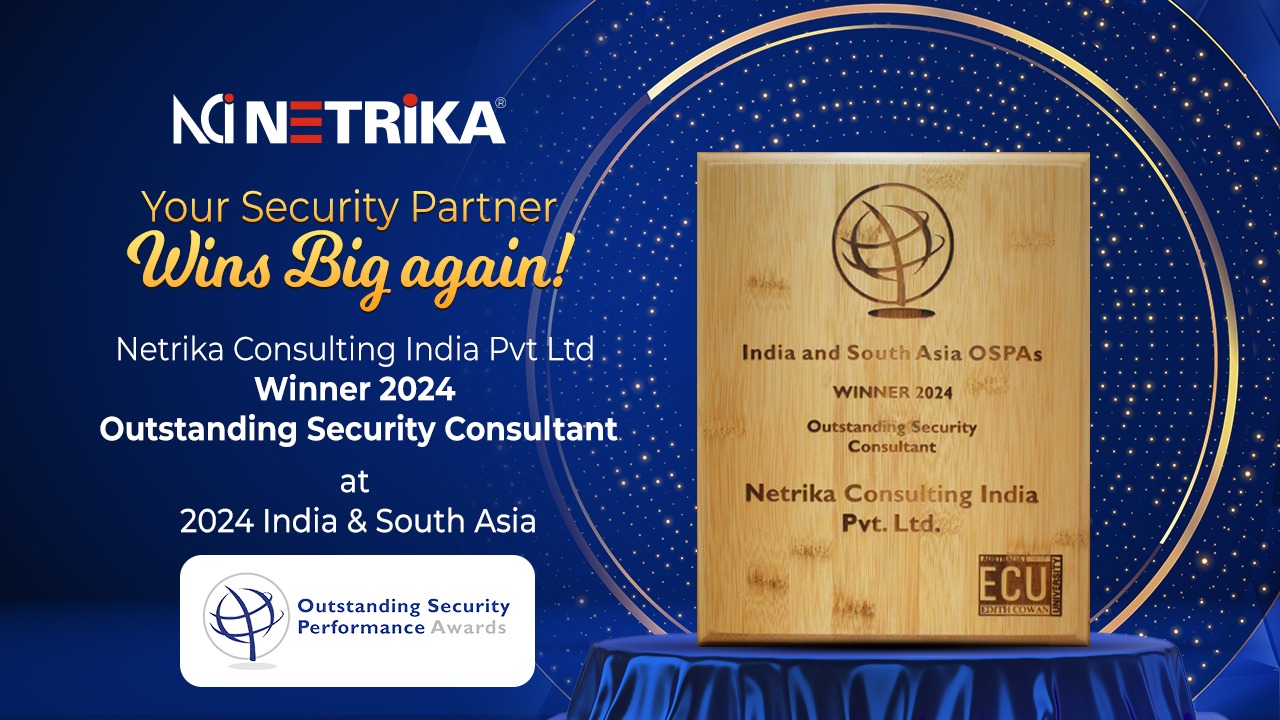News & Events
Top Security Management Courses Online
- February 21, 2023
- Posted by: marketing@netrika.com
- Category: Blogs

Top Security Management Courses Online
The corporate security sector includes a variety of employment roles that necessitate a variety of specialist skills. Because the risk landscape in businesses and individuals is continuously changing, security experts must maintain their professional growth.
From security guards to close protection officers to analysts and ethical hackers, every member of the security staff has a significant amount of responsibility. By utilising strategic security structures, concepts, principles, and models from the best security management courses, they assist in laying the groundwork for a robust corporate security framework. It enables the certified security managers to investigate security technical advances, as well as global risk and physical security trends. The top security management certifications tie specialists to both short-term and long-term security threats and concerns. Both basic and advanced security management courses help specialists in designing, monitoring, and presenting a security budget to C-suite leadership.
However, considering a profession of security management or advancing their career portfolio requires specialists to have some critical skills, including.
Leadership and Management
Leaders in the security industry strive to help businesses succeed by reducing the risk provided by attacks. This includes strategy development, employee management, problem solving, and logistics. Security Management is the component of a company that manages a unified set of security and resilience functions to safeguard the company, its brand, employees, assets, and data through the use of many layers of mutually dependent systems.
This essential trait for an advanced security management course helps you advance your career to management, including-
- Detection of threats
- Security, Fraud, and Adaptability Risk Evaluations
- Policy and procedure development and implementation
- Creating a Strategy and Culture for Security and Resilience
- Providing Education and Awareness
- Effectiveness of Monitoring and Auditing
- Observance of Regulations and Standards
- Investigations
Data Analysis
In the security industry, completing extensive data analysis using the information available to you will safeguard a business from a variety of risks that may hurt employees, destroy brand reputations, or even result in cash loss. Threat analysis as an essential skill under best security management courses lays emphasis on security data analysis. Its goal is to limit the risks of security breaches and to neutralise threats before they may be exploited.
Threat Analysts have strong technical, analytical, and communication abilities because they frequently conduct specialised investigations and prepare high-level technical reports. It necessitates a high level of attention to detail as well as a commitment to ongoing learning and progress.
Incident Response
Any security expert must be able to react quickly and responsibly in the case of a security breach. Whether you are dealing with a physical security incident like trespassing or theft, or a cybersecurity crisis like a data breach or malware attack, incident response skills are essential for a successful response.
Top security management certifications expect the specialists to incorporate the skills of:
- Specialized training based on the industry vertical
- Rapid reaction times
- Physical stamina
- Ability to remain calm in stressful situations
- Communication skills
- Attention to detail
Soft Skills
Soft skills are appreciated throughout industries, but these are the most critical areas for certified security managers.
- Teamwork and Collaboration
To have a successful career in this business, you must be able to cooperate, collaborate, and work with others.
- Customer Support
As a security professional, you will almost certainly interact with customers and members of the general public. Customer service is a highly transferable talent that may be proven through prior work experience and during interviews.
- Communication Abilities
One of the most critical soft skills for a security worker is communication. All messages, both written and verbal, must be clear, concise, and contain enough detail to effectively express the content without causing the recipient to become confused.
Designing the security management framework through CCSMS course
The CCSMS seeks to teach participants about the influence of risk and threat on day-to-day company operations, as well as the two primary categories of risk classifications – pure risk and business risk – and risk response options such as risk transfer, risk acceptance, risk avoidance, and risk mitigation. Participants will also learn what terms like risk aversion, risk proneness, risk tolerance, and risk threshold imply and how they affect them.
The advanced security management course (CCSMS) offered by Netrika Consulting in collaboration with ASIRS is designed for individuals who want to advance their security knowledge through accredited professional development, with each course designed to improve the skills, knowledge. and experience of security professionals as well as those who want to start a new career in the security industry.

